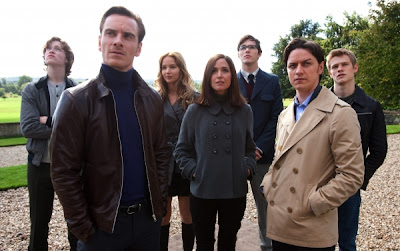Over 10 years ago, America was introduced to Marvel Comics’ popular X-Men on the silver screen. The film was such a hit it inspired several sequels and kick-started the trend of adapting comics into movies, many of which have become the biggest blockbusters of the decade.
After the release of the mature and meditative The Dark Knight, a film that proved comic book movies could be more than just popcorn-munching entertainment, no other film came along to carry the baton it seemed to be passing along begging the film industry to take the medium a bit more seriously.
After the release of the mature and meditative The Dark Knight, a film that proved comic book movies could be more than just popcorn-munching entertainment, no other film came along to carry the baton it seemed to be passing along begging the film industry to take the medium a bit more seriously.
This summer it seems that Hollywood is trying to test movie-going audiences to see just how broad their interest in comic book movies is. Over the next several months, stories of a disgraced god, a cosmic protector, a WWII hero, and a group of mutants during the Cuban Missile Crisis will be told in theaters around the world.
So, it is fitting the franchise that started it all returns to reestablish its roots, all while trying to push the genre forward with X-Men: First Class. What makes the X-Men such an adaptable franchise is it acts as a fantastic social metaphor that has been used to discuss such varied topics as racism, anti-Semitism, diversity, the LGBT movement, the red scare, and religion. At the heart of the X-Men, however, is the discussion of evolution and its effects and consequences for the human race.
It is this lack of evolution that in the end is detrimental to X-Men: First Class, a film that is too focused on telling and retelling the origin of characters that we already know and love, but not in a new or interesting way.
The film starts with a scene right out of X-Men where a young Erik Lensherr, who will grow to become the villain known as Magneto, is discovered to have magnetic powers. He is quickly put to the test by the evil Sebastian Shaw (Kevin Bacon), a scientist obsessed with gene manipulation. After Erik’s failure and his mother’s death, Erik (Michael Fassbender) grows up to be a mutant, seemingly alone in the world with incredible power and a lust for the most violent of revenges.
In sharp contrast to Erik is Charles Xavier (James McAvoy), who will become the powerful telepath known as Professor X, an alluring Oxford scientist who has a vision of a world where there is harmony between the mutants and the rest of mankind.
The two, Charles and Erik, team up to combat Shaw, despite their different motivations and world-views, while training a ragtag team of mutant teenagers who have yet to discover the true potential of their powers.
X-Men: First Class is at its best when it is focused on its characters, particularly Charles and Erik. Erik’s quest for revenge in a world that seeks to abuse him is handled well, but it all suffers from a been-there done-that approach.
The same could be said about the friendship between Erik and Charles. The film never gives a compelling reason for the two to be friends and thus under-utilizes the potential in watching their two different world-views send their friendship splintering apart. It really is a shame too, because Michael Fassbender and James McAvoy are brilliantly cast in their roles and they deliver the best performances possible with what they are given.
The same cannot be said for the rest of the cast, if one can call them that, as each actor struggles to create a role for their character and ends up instead overacting. The film preaches tolerance and acceptance of the differences between all humans but at the same time relegates its cast to be character-less shells for whatever power set they have.
X-Men: First Class breaks the cardinal rule of storytelling: show don’t tell. Instead, the writers beat audiences over the head with lines that are meant to make the theme overly apparent. Humans shout to attacking mutants from off-screen, “Don’t hurt us NORMAL people!” Not only is this intellectually insulting it is lazy and sloppy storytelling that draws attention to itself in the worst of ways.
X-Men: First Class isn’t a terrible film. The production quality is fantastic and it is exactly what one would expect from an X-Men film. The problem is the genre has evolved greatly since the first film was released in 2000. X-Men: First Class at best feels like a film that has been released a decade too late and without its own distinct mutation.
 |
| 2.5 / 4 Reels |
Audio Version:
Trailer:



No comments:
Post a Comment